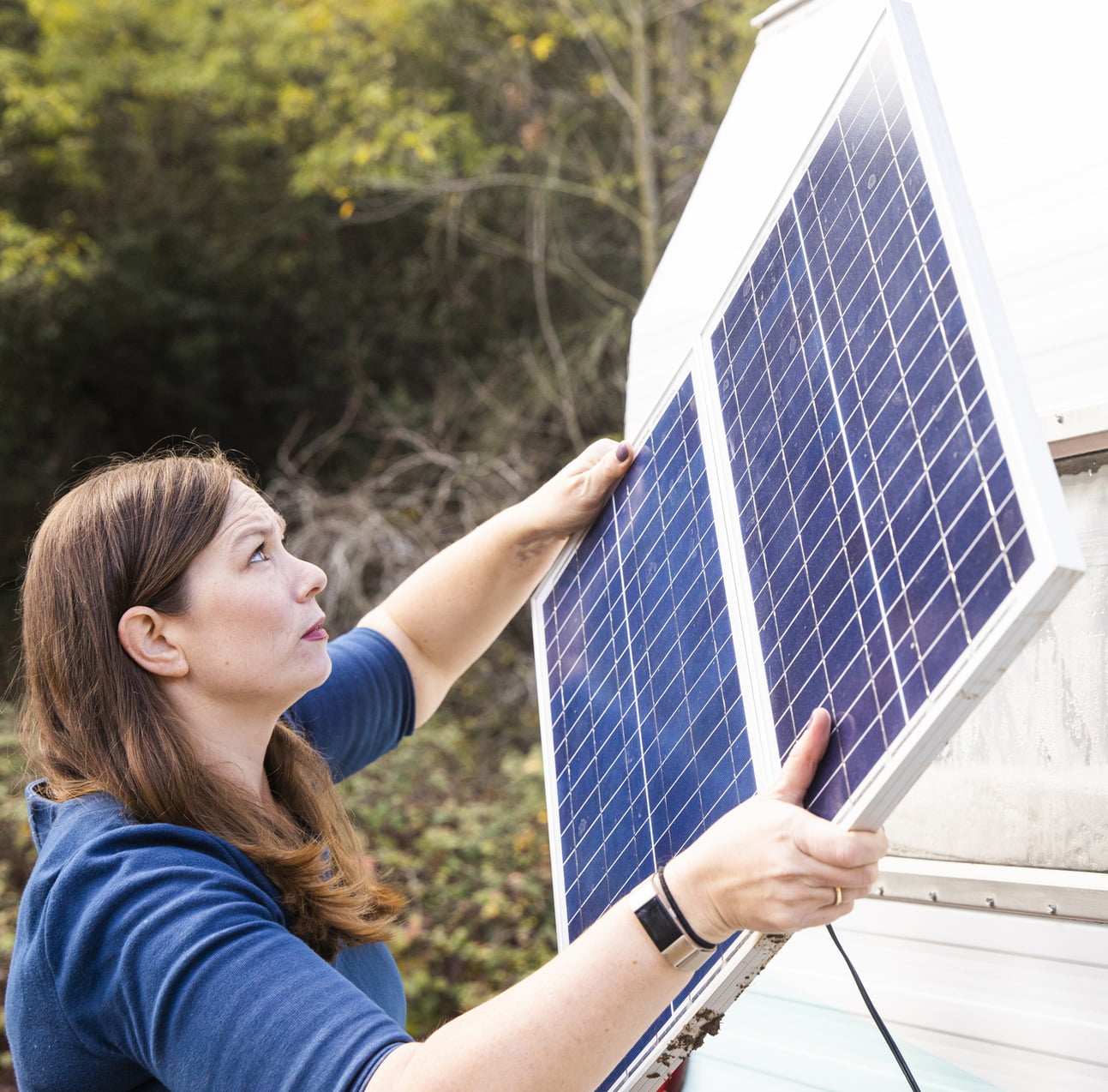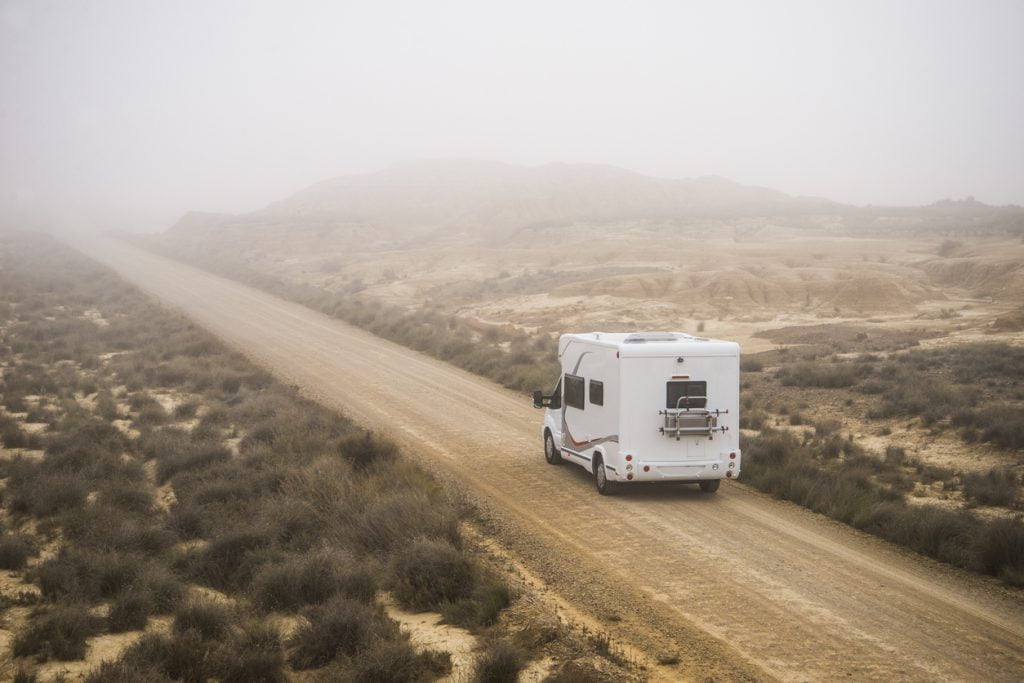Living an Earth-conscious life is becoming a huge priority all over the world. Many people are becoming more diligent about recycling, choosing to use eco-friendly products, and eating more plant-based foods.
While there are countless pieces of advice on how to make homes more green, there’s not as many resources for RVs, even though more travellers than ever before are investing in various types of motorhomes. Whether you’re a full-timer whose RV functions as your primary residence, or you’re a seasonal traveler who only takes your rig out on the occasional adventure, there are many outlets you can use and habits you can adopt that will help you protect the Earth while you enjoy exploring its many treasures.
To help you greenify your own RV adventures, here are a few tips to keep in mind:
Be Mindful Where You Camp
If you choose to boondock or park your RV in backcountry areas instead of traditional RV parks, be mindful of where you park and set up camp. Primitive camping spots are gorgeous, and it’s always an exhilarating moment when you feel like you discovered a hidden gem of a spot.
That being said, try to pick spots that are either marked or show signs campers have been to that spot before you. This way, you will avoid damaging undisturbed natural areas. Similarly, always look for and respect nature conservation boundaries, which are generally marked by signs to keep away.
Minimize Energy Use While RVing
Minimizing energy usage is the first step many people take when looking to live a greener lifestyle. Here are a few ways to achieve this in your RV:
- Try to occasionally get by without a power source. If you choose to boondock, see how long you can go without a generator. Likewise, consider not utilizing campground hook-ups. Part of the RV allure is having modern conveniences in a camping setting, so don’t feel the need to completely give up electricity. Rather, try to alternate parts of your travel with instances where you use a power source with times where you forgo it.
- Stay cool without your AC. Air conditioning units are notorious for using high amounts of power, so try your best to get by without it. By orienting your RV so that the side of it that has the most windows is in the shade as well as setting up a comfortable area underneath your RV awning, you should be able to stay cool without blasting your unit. You can also add reflective insulation to your RV windows, which will direct the sun away from your RV and help keep the indoor temperatures down.
- Unplug utilities and turn off lights when not in use. Just like at home, simple steps like this can go a long way.
- Turn down your utilities when away from home. If you’re going on an extended RV trip, you can set your water heater to a vacation mode (or on a lower setting), unplug appliances, and turn off/down your air conditioner/heater. These steps will help prevent unnecessary energy usage, and you’ll also save money on utilities. Some RVers turn off all of their appliances altogether, but some argue that it can cause damage. Talk to a professional first about what would be the best for your home.
Be Responsible With Fire
When air quality is particularly poor or there is a high risk of fire, officials may issue a fire ban. Always check to see if the area you’re staying in has any alerts or bans in place before you start toasting your marshmallows.
If there isn’t a ban, try to keep your fire small and well-controlled. Additionally, avoid throwing cans, color-printed paper, or plastics into the pit, as burning trash can release harmful toxins into the environment.
Plan Ahead for Your Recycling
Recycling in your RV is certainly more complicated than at a traditional home. Most RV parks don’t supply recycling bins, and while it may be tempting to just toss your recyclables in with your normal trash, doing so won’t help your efforts to live a more eco-conscious life.
The good news is that there are ways you can dispose of your items in a way that doesn’t compromise your mission to be more environmentally-friendly. Many grocery stores will have large recycling containers you can visit on your way through town, and there are also a few apps you can download that will point you in the direction of the nearest recycling center.
Use Reusable or Recyclable Items
When you’re on the go, the last thing you want to deal with is keeping up with dishes. It’s easy to see why so many RVers give into the temptation to use plastic forks and paper plates and cups. That being said, the convenience factor is not ideal for living sustainably.
By sticking to reusable items, you’ll be keeping loads of trash out of the landfills. If you are having a difficult time staying away from one-time use products, try to only use disposables that can be recycled. It’s important to note that not all recycling centres accept items that have food particles on them.
Consider Alternative Energy
Solar power is becoming more accessible, and many RVers have solar panels that allows them to take advantage of viable, Earth-friendly power. As long as you have access to the sun, you can enjoy your RV’s amenities, even in more primitive locations. How to set up your solar system will vary on if you plan to use it as your primary energy source as well as how much energy you typically use per day, so it’s important to do your research before buying the first panel kit you find.
Maximize Your RV’s Fuel Mileage
The less fuel you burn, the better it is for the environment. Making sure your RV is getting the best mileage will help you minimize the amount of gas you use as you drive, which is better for both the planet and your wallet.
- Here are a few ways to cut back on how often you fill up your tank:
Stay up to date on regular maintenance. Changing the air filter, making sure your engine is in good shape, and keeping tire pressure at the manufacturer’s recommendation can all help improve your fuel mileage. - Go slow and steady. Rapid acceleration, sudden braking, and speeding are all actions that will burn more fuel than necessary. Use cruise control when you can, and when you can’t, do your best to maintain a steady pace.
- Travel light. The heavier your RV load is, the more gas is required to get you up inclines. Pack light, and consider stopping for heavier items, such as water jugs, until you’re closer to your destination.
- Minimize AC use when possible. If you won’t be absolutely miserable, keep the AC down or occasionally turn it off, as you’ll burn more fuel with it on.
Closing Up
Hopefully these tips will help clarify how to shape your RV lifestyle into being more Earth-conscious. By putting in the extra effort to develop habits that work to protect the environment, you’ll be able to wander the majestic pathways the planet has to offer, knowing you are doing all you can to express your appreciation for the beauty and wonder of the outdoors.




